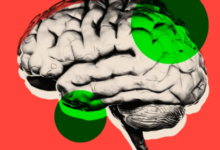Raising Awareness: Parkinson’s Disease and Effective Management Strategies

Parkinson’s disease (PD) is a debilitating neurological disorder characterized by a range of symptoms, including tremors, falls, and slow movements. To address the pressing need for greater understanding and effective management of this condition, the department of neurology at Fortis Hospital, Mohali, recently organized an awareness talk tailored specifically for Parkinson’s patients and their caregivers.
READ: OAS to Step in as Mediator in Guatemala’s Power Transition Crisis
Parkinson’s Disease
PD presents a myriad of challenges for those affected, impacting not only physical health but also quality of life. Recognizing the warning signs of Parkinson’s is crucial for early intervention and effective management. Symptoms such as tremors, muscle stiffness, and impaired balance often begin gradually and may be mistaken for normal signs of aging or other health issues. However, early detection enables healthcare professionals to initiate appropriate treatment strategies to alleviate symptoms and improve patient outcomes.
Moreover, the awareness talk emphasized the importance of diet and the timing of medication in managing Parkinson’s effectively. Research has shown that nutritional interventions can play a significant role in managing symptoms and slowing disease progression. A balanced diet rich in antioxidants, vitamins, and minerals can help support overall health and mitigate the impact of Parkinson’s on daily functioning. Additionally, adhering to a consistent medication schedule is essential for optimizing treatment efficacy and minimizing fluctuations in symptom control.
The event provided attendees with valuable insights into the latest advancements in Parkinson’s research and treatment options. By staying informed about the latest developments in the field, patients and caregivers can make informed decisions about their healthcare and access the most effective therapies available.
In addition to medical interventions, holistic approaches to Parkinson’s management were also discussed during the awareness talk. Physical therapy, occupational therapy, and speech therapy can play integral roles in improving mobility, independence, and communication skills for individuals living with Parkinson’s. Furthermore, support groups and community resources offer invaluable emotional support and practical assistance to patients and their families as they navigate the challenges of living with Parkinson’s.






